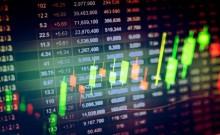European investors edged back into safer assets on Wednesday as a shootout between French police and militants suspected of involvement in the Paris attacks kept the market focused on international security issues.
Stocks fell and core bonds rose, but the scale of the moves reflected caution rather than significant concern, economists said.
The pan-European FTSEurofirst 300 index, which had risen 2.6 percent on Tuesday, fell 0.7 percent while the euro zone's blue-chip Euro STOXX 50 index declined by 0.8 percent.
German Bund yields fell 2 basis points to 0.51 percent, hitting their lowest in two weeks.
The dollar was just off 7-month highs against a basket of currencies, as minutes from the latest Federal Reserve policy meeting were expected to underpin expectations of an interest rate hike in December.
The dollar strength hit commodities, with London copper falling towards new six-year lows [MET/L].
The European Central Bank is expected to supercharge monetary policy easing next month, a prospect the attacks have made even more likely.
The bank's chief economist Peter Praet said on Tuesday that such events hurt confidence while executive board member Yves Mersch said on Wednesday that "doom and gloom" talk was at this stage not warranted.
"There's absolutely no reason not to expect the ECB to ease next month and we've had further falls in commodity prices that adds to the subdued inflation outlook," said Chris Scicluna, head of economic research at Daiwa Capital Markets in London.
"The events in Paris compound that and compound the weaknesses in the euro area."
FED MINUTES
The dollar index was lower at 99.501 after touching 99.745 on Tuesday, its highest since mid April. It has risen 6.3 percent in the past month as market odds for a U.S. interest rate hike in December moved from around 30 percent to 66 percent.
This week's data further cemented rate hike expectations. Monthly U.S. consumer prices increased in October after two straight months of declines, putting annual core inflation at 1.9 percent.
Industrial output fell short of market expectations but output in the manufacturing sector posted a solid increase.
"It will be a case of range-trading going into the Fed minutes. We could see some positions being pared, with the dollar having risen in the past few weeks," said Jeremy Stretch, head of currency strategy at CIBC World Markets.
The dollar's dip saw the euro regain ground. It rose to $1.0670, having dropped to a seven-month low of $1.0630 on Tuesday.
Gold hit a 5-1/2-year low of $1,064.95 per ounce overnight as the strong dollar offset its traditional safe-haven appeal. In Europe, it was up 0.07 percent on the day at $1,071.4 an ounce. [GOL/]
Oil prices rose following reports of falling stockpiles and rising refinery activity, though they remained not far from 6-1/2-year lows hit in August on persistent concerns about a global supply glut.
U.S. crude futures were up almost half a dollar to $41.13 a barrel, while Brent crude futures traded at $44.13 per barrel.















